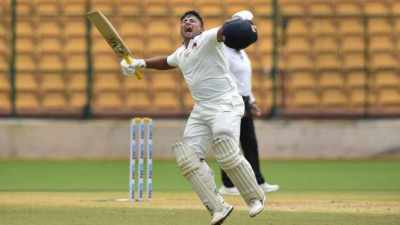Under fire from the Opposition in Parliament over the communal riots in the national capital, the Union government is contemplating issuing fresh guidelines to social media platforms, which, the government feels, have become “tools to propagate hate and spread inflammatory messages”.

Twitter, it is learnt, was singled out for lower and slower compliance rates, with the Delhi Police Commissioner referring to specific riot-related tweets circulated on February 23 and 24 that led to rumour-mongering.
The meeting was led by the Home Secretary and was attended by officials from the Information and Technology and Information and Broadcasting ministries, Delhi Police officers, and executives from Google, Twitter, Facebook, WhatsApp, and TikTok.
“Many issues were discussed and the government was clear that it did not want these platforms to peddle fake news and spread hatred, like what happened in the last few days (in Delhi),” a top government official told The Indian Express.
The MHA is learnt to have directed the IT Ministry to take up the matter with social media companies. “We have held some meetings and we need to take some measures now. There will be some fresh guidelines for them. We are in discussions and we might have to issue guidelines with stringent messages,” a top official in the IT Ministry said.
Sources said the government wants to take some “tangible”and “visible” steps to prevent such incidents in future. “The government is aware that it cannot ban any social media platform, but certain regulations have to be in place,” a Union minister said.
Story continues below this ad
None of the companies officially responded to requests to comment.
Government officials hold a monthly meeting with social media companies in which they display a breakdown of each company’s rates of compliance with Section 69A of the Information Technology Act, which allows the government to order online content take-downs. Sources said Twitter had the lowest compliance rate this month, with higher rates by Facebook (which includes WhatsApp), Google (which includes YouTube), and Tik Tok – in that order.
The officials are learnt to have given a stern warning to the companies, especially Twitter, to reduce the time taken to comply with government requests and to more proactively enforce the law on their platforms. The companies responded by presenting their own actions, sources said.
The companies are likely to be held under stricter regulation soon, with the pending notification of new amendments to IT Act.
Story continues below this ad
Sources said a little over a week ago, Facebook labeled Delhi riots as an “event” under its “Dangerous Individuals and Organisations” policy, the same labeling that applied to the 2018 communal riots in Sri Lanka. Under the policy, a guidance is sent to the company’s moderators to ensure that content involving “organized hate” or “mass murder” provides context condemning or neutrally discussing the activity concerned. The policy states that moderators will “remove content that expresses support or praise for groups, leaders, or individuals involved in these activities … We do not allow content that praises, supports, or represents events that Facebook designates as terrorist attacks, hate crimes or mass shootings.”
Throughout the period of riot violence in North East Delhi, Facebook accounts neutrally posting the video of BJP leader Kapil Mishra threatening the Delhi Police were most visible on the platform. On the other hand, Twitter continued to have videos with messages supporting Mishra’s statements, as well as trending hashtags praising the BJP leader.
Similarly, after “goli maaro” slogans were shouted in Union minister Anurag Thakur’s rally, content positively promoting the slogan was still viewable on Twitter.
Twitter’s content policy states: “You may not threaten violence against an individual or a group of people. We also prohibit the glorification of violence…. Under this policy, you can’t state an intention to inflict violence on a specific person or group of people. We define intent to include statements like “I will”, “I’m going to”, or “I plan to”, as well as conditional statements like “If you do X, I will”.”
Story continues below this ad
The Twitter reprimand comes at a time when their headquarters is also under pressure, as a major company investor has made moves to oust CEO Jack Dorsey. Twitter is one of the most open platforms used in India with a significantly smaller company size than the other platforms.
In similar controversies abroad, such as the banning of right-wing American commentator Alex Jones, the company made a decision much later than the other popular platforms.
YouTube has over the past year downranked less credible sources on its website in India, giving more visibility to “authoritative” accounts recounting the events of last week. Tik Tok is learnt to have said in the meeting that they are mostly an entertainment platform, but inevitably see violence-related content and act against that content accordingly. #IStandWithKapilMishra was a hashtag found with the BJP leader’s speech on TikTok last week as well.
None of the companies officially responded to requests to comment.
Story continues below this ad
“Twitter played an instrumental role in tackling abusive content and coordinated disinformation related to the Delhi riots. Twitter is the only uniquely open service where inaccurate content was also debunked in real time by people, including Law Enforcement, trusted journalists and news media organizations which helped protect the public,” a Twitter spokesperson said.

 Twitter, it is learnt, was singled out for lower and slower compliance rates, with the Delhi Police Commissioner referring to specific riot-related tweets circulated on February 23 and 24 that led to rumour-mongering. (File photo)
Twitter, it is learnt, was singled out for lower and slower compliance rates, with the Delhi Police Commissioner referring to specific riot-related tweets circulated on February 23 and 24 that led to rumour-mongering. (File photo)






